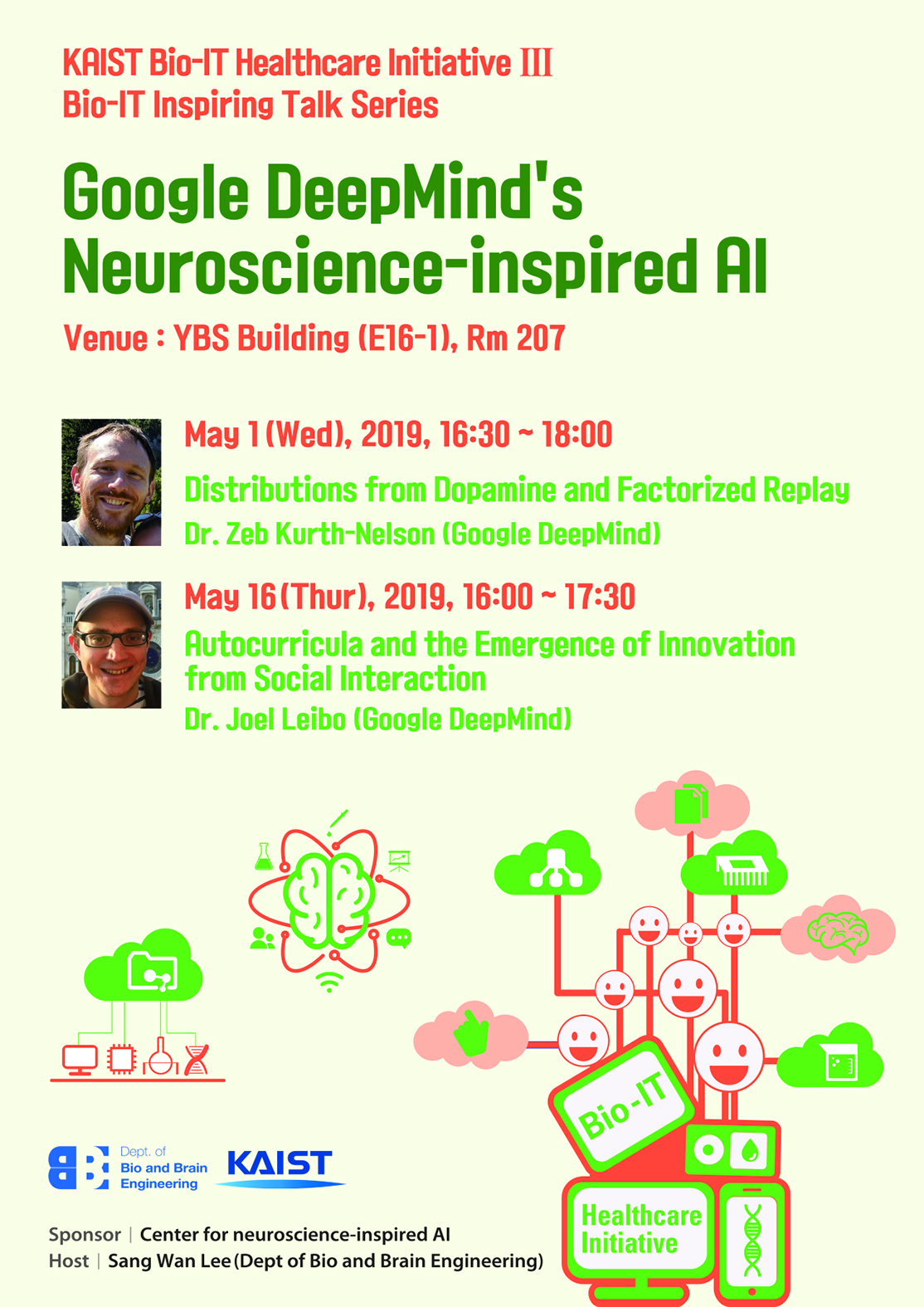| 연사 | Dr. Zeb Kurth-Nelson, Dr. Joel Leibo |
|---|---|
| 소속 | Google DeepMind |
| 일시 | 5/1(수) 16:30~18:00, 5/16(목) 16:00~17:30 |
| 장소 | E16-1 양분순빌딩 #207 |

KAIST Bio-IT Healthcare Initiative III 사업 일환으로 Google DeepMind's Neuroscience-inspired AI 세미나 시리즈(Inspiring Talk)를 개최합니다.
여러분들의 많은 참여 바랍니다! (등록은 필요하지 않습니다)
1. Dr. Zeb Kurth-Nelson (Google DeepMind)
- Date and Time : 16:30-18:00, May 1 (Wed)
- Place : E16-1 YBS building, Seminar room 207 (2F)
- Title: Distributions from Dopamine and Factorized Replay
- Abstract : I'll present two new studies. 1) In the classic TD theory of dopamine, the brain learns about the mean of probabilistic rewards. Recent AI research has gotten large performance gains from modifying the TD algorithm to learn about the full distribution of rewards. We looked in single unit dopamine recordings and found evidence that the brain uses this modified algorithm. 2) There are fast spontaneous neural sequences, with properties similar to rodent hippocampal replay, in humans in non-spatial tasks. In a new experiment, we found that these sequences don't simply recapitulate experience, but are re-organized according to abstract knowledge. Each replay event is also interleaved with replay of a factorized code, which we argue could facilitate rapid transfer of abstract knowledge to new experiences.
2. Dr. Joel Leibo (Google DeepMind)
- Date and Time : 16:00-17:30, May 16 (Thur)
- Place : E16-1 YBS building, Seminar room 207 (2F)
- Title: Autocurricula and the Emergence of Innovation from Social Interaction
- Abstract : Evolution has produced a multi-scale mosaic of interacting adaptive units. Innovations arise when perturbations push parts of the system away from stable equilibria into new regimes where previously well-adapted solutions no longer work. In this talk, we will explore the hypothesis that multi-agent systems sometimes display intrinsic dynamics arising from competition and cooperation that provide a naturally emergent curriculum, which we term an autocurriculum. The solution of one social task often begets new social tasks, continually generating novel challenges, and thereby promoting innovation. Under certain conditions these challenges may become increasingly complex over time, demanding that agents accumulate ever more innovations.






